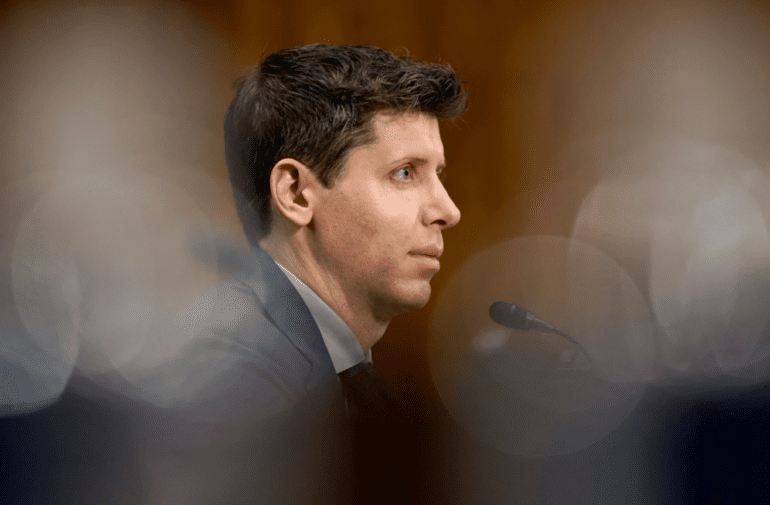TL;DR:
- Sam Altman is reinstated as OpenAI’s CEO following a recent upheaval.
- The nonprofit board cited transparency concerns when removing Altman as CEO.
- OpenAI witnessed internal strife, interim CEO appointments, and employee threats.
- A new board is introduced, featuring notable figures from the tech industry.
- Altman expresses his commitment to OpenAI and its partnership with Microsoft.
- Uncertainty surrounds OpenAI’s governance structure and future direction.
- Altman’s dismissal prompted widespread support from tech leaders and employees.
- Market implications include potential stability and a renewed focus on AI development.
Main AI News:
In a swift resolution to a high-profile corporate drama, Sam Altman has reclaimed his position as the Chief Executive Officer of OpenAI. The cutting-edge tech startup, famed for its ChatGPT platform, announced late Tuesday that Altman and the board of the nonprofit entity overseeing the company have reached a preliminary agreement for his return as CEO. This development marks the end of a closely watched saga in the tech world, characterized by internal strife and uncertainty.
The tumultuous series of events commenced last Friday when the board of the overseeing nonprofit organization removed Altman from his role as CEO, citing concerns about his transparency in communication. This decision led to a cascade of reactions within OpenAI, resembling the dramatic plot twists of TV shows like “Succession” and the satirical humor of “Silicon Valley.” The company hastily appointed two interim CEOs, Altman seemed to align with Microsoft before the decision was reversed, and deadlines for negotiation regarding his reinstatement reportedly passed with no resolution, prompting employee threats of mass resignations.
OpenAI has now revealed the composition of its new board, consisting of three prominent members: former Salesforce co-CEO Bret Taylor, former White House advisor and Harvard University President Larry Summers, and Adam D’Angelo, CEO of Quora and a former early employee of Facebook. The company expressed its gratitude for the patience of its stakeholders during this period of uncertainty.
Although D’Angelo was already a member of the previous OpenAI board, several former members, including tech entrepreneur Tasha McCauley, OpenAI chief scientist Ilya Sutskever, and Helen Toner, director of strategy and foundational research grants at Georgetown University’s Center for Security and Emerging Technology, will not retain their positions. The board members have refrained from divulging specific details regarding Altman’s removal, other than citing a lack of consistency in his communication.
OpenAI’s Chief Operating Officer, Brad Lightcap, assured employees that Altman’s dismissal was not due to any misconduct or issues related to the company’s finances, business operations, safety practices, or security/privacy policies. Recent reports suggest that the board’s internal disputes, ongoing for over a year, revolved around questions concerning the responsible development of AI and the pace at which the technology should be rolled out while ensuring human control.
In a statement, Altman expressed his affection for OpenAI and his dedication to preserving its mission. He eagerly anticipates returning to his role as CEO and building on the strong partnership with Microsoft, which has a history of investment in OpenAI and provides cloud computing services to the organization. Microsoft’s CEO, Satya Nadella, welcomed the changes to the OpenAI board as a positive step toward more stable and effective governance.
Despite the apparent resolution, uncertainty looms over OpenAI’s future and its unique governance structure. Originally founded as a nonprofit organization, OpenAI later incorporated a for-profit subsidiary, with the nonprofit board having the ultimate authority and no external oversight from shareholders or other parties.
Sam Altman, a prominent figure in San Francisco’s tech ecosystem, has garnered recognition as an investor, startup advisor, and CEO of one of the tech industry’s most promising startups. His sudden removal led to an outpouring of support from influential tech personalities, including former Google CEO Eric Schmidt. Over 95% of OpenAI’s workforce signed a letter advocating for Altman’s reinstatement, preventing the scenario of Altman and most employees transitioning to Microsoft, a prospect Elon Musk deemed less favorable due to concerns about power concentration.
Conclusion:
The return of Sam Altman as OpenAI’s CEO signals the resolution of a tumultuous period in the company’s history. This development, driven by transparency concerns, has showcased internal strife and prompted a significant shift in the organization’s board. While Altman’s commitment to OpenAI and its partnership with Microsoft remains strong, questions linger about the company’s governance structure and future trajectory. Nevertheless, this event may contribute to increased stability and a renewed emphasis on AI development in the market.

